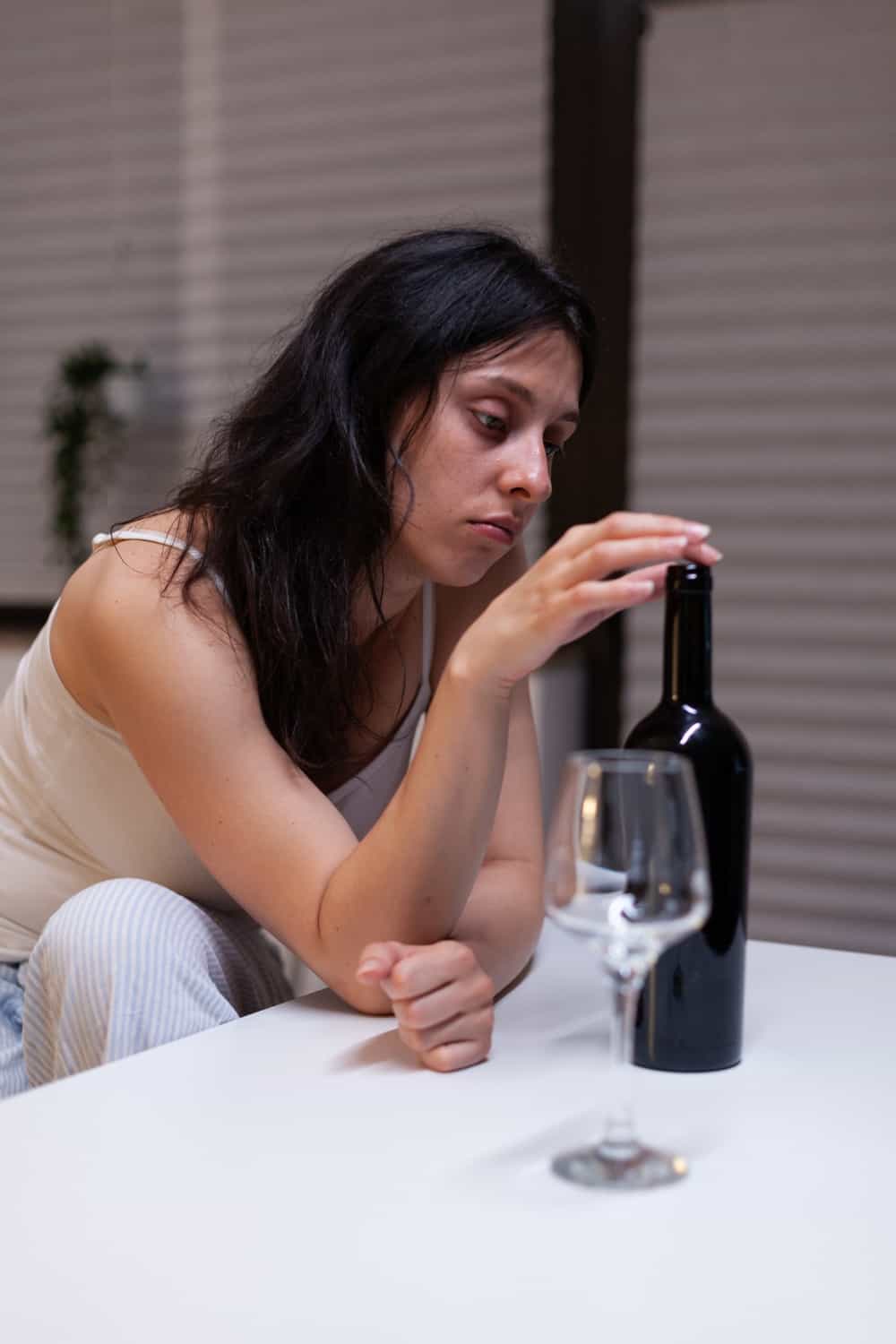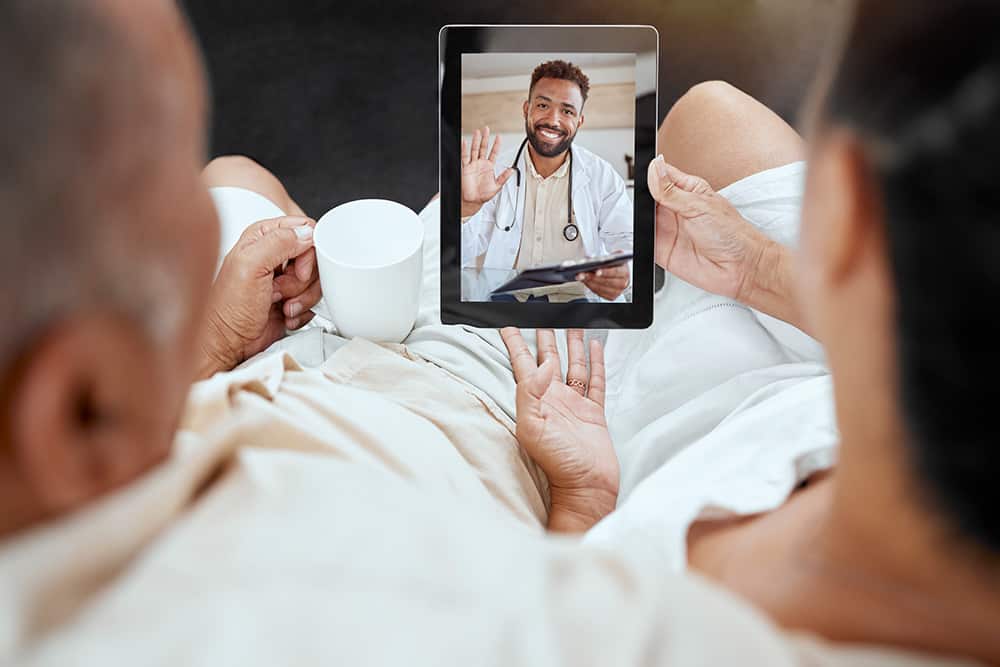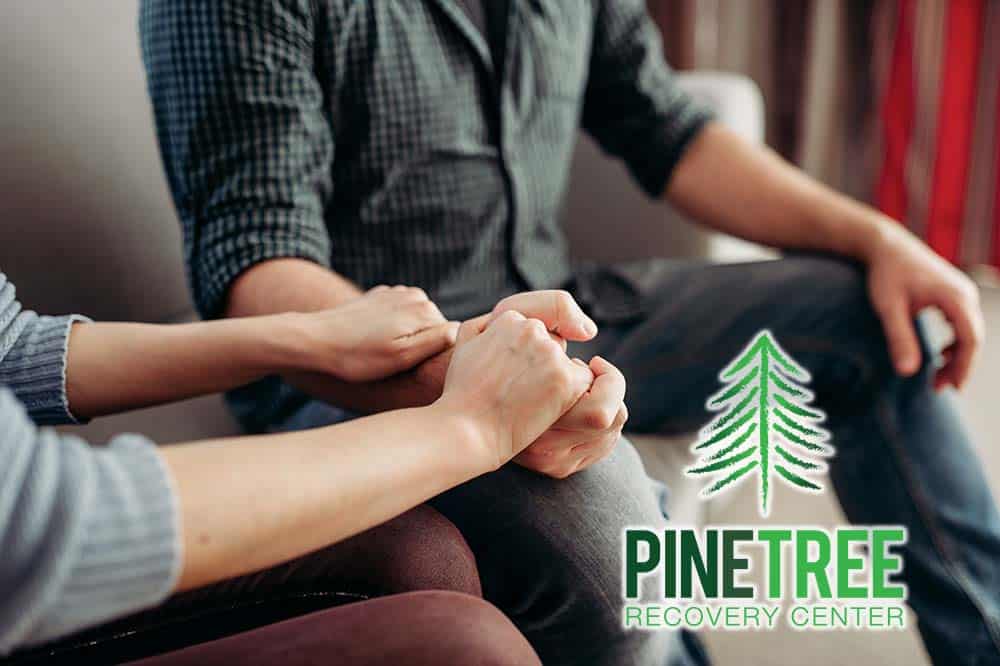Co-Occurring Disorders
Alcoholism & Anxiety
Alcoholism & Anxiety
We all feel anxious from time to time. Maybe we feel underprepared for a huge exam, or maybe we get a little bit anxious before a job interview. Whatever the case may be, experiencing some degree of anxiety on occasion is a pretty standard part of the human experience. But for men and women who are struggling with a diagnosable anxiety disorder, the associated symptoms are ongoing and often crippling. They interfere with overall quality of life and make completing daily tasks exceptionally difficult. The majority of people who struggle with a diagnosable anxiety disorder never receive the professional help they need. Instead, they often turn to self-medication as a way of alleviating their symptoms. Because of this fact, many men and women who struggle with undiagnosed or untreated anxiety disorders simultaneously struggle with alcoholism.
At Pine Tree Recovery Center we offer dual diagnosis treatment options for individuals who have been struggling with anxiety and alcoholism simultaneously. In order for one issue to be effectively treated, both must be treated at the same time. Dual diagnosis treatment should begin as early as medical detox, where a client initially goes through an in-depth addiction assessment which helps our clinical team determine whether or not mental health conditions are present and which treatment options are going to be the most effective. If a client is found to have an undiagnosed or untreated anxiety disorder, he or she will have access to the care they need while in medical detox. Following detox, Pine Tree Recovery Center offers intensive outpatient services ran by licensed professional therapists who are highly experienced with dual diagnosis patients. Or, if a higher level of care is preferred, our professional case managers can help arrange for clients to continue on to a dual diagnosis inpatient treatment center following their stay in detox.
Most Common Types of Anxiety Disorders
Anxiety comes in many forms. When people think of anxiety, they generally think of panic attacks, extreme nervousness, profuse sweating and an inability to breathe deeply. However, there are numerous other types of anxiety disorders a person can suffer from.
Common Anxiety Disorders:
Generalized Anxiety Disorder (GAD) – This is the most common type of anxiety disorder, and it is characterized by chronic feelings of worry and nervousness, even when the worry is not caused by anything in particular. People who struggle with GAD constantly feel as if something bad is going to happen, which makes it more difficult for them to complete day-to-day tasks and simply enjoy life on a daily basis.
Obsessive Compulsive Disorder (OCD) – This type of anxiety is one of the more severe types of anxiety, and it is also more difficult to treat than other anxiety disorders. OCD is characterized by obsessive thoughts and compulsive behaviors. Some of the repetitive behaviors that people with OCD often engage in include hand washing, counting, excessive cleaning or performing other compulsive rituals.
We Are Here For You
Panic Disorder – If a person is struggling with panic disorder, he or she is prone to unexpected panic attacks that can occur even when not prompted by anything in particular. These panic attacks result in a range of physical and psychological symptoms including shortness of breath, abdominal pain, chest pain, nausea, vomiting or heart palpitations.
Post-Traumatic Stress Disorder (PTSD) – While PTSD is rooted in unresolved trauma, it is technically an anxiety disorder. PTSD develops after a person has been exposed to one particularly traumatic event, or to a series of smaller traumatic events. People might develop PTSD after living through a natural disaster, undergoing a violent assault, surviving an abusive childhood or experiencing active military combat, for example. The most common symptoms of PTSD include flashbacks of the traumatic event, recurring nightmares, an inability to trust other people, and avoidance of certain people, places or things that remind the person of the event.
Agoraphobia (Social Anxiety Disorder) – People who are suffering from a social phobia will experience extreme self-consciousness and nervousness when they engage in everyday social situations. These situations could be as simple as riding a bus or another means of public transportation, or waiting in the checkout line at a grocery store. Social anxiety disorder might also only appear in specific situations, for example, public speaking or meeting a person for the first time.
Specific Phobias – Some people suffer from specific phobias, which is characterized by an intense fear of one particular thing like spiders, heights or the dark.
No matter how severe an anxiety disorder is, it can most often be treated with a combination of intensive behavioral therapy and medication. However, if someone who is struggling with an anxiety disorder is simultaneously struggling with alcoholism, the treatment process will be more comprehensive. Treatment will need to address both the alcohol use disorder and the anxiety disorder simultaneously.
Our Drug & Alcohol Detox Services Include
The Link Between Anxiety & Alcoholism
There is a very clear and well studied link between anxiety and alcoholism. Nearly half of all men and women who suffer from a moderate or severe anxiety disorder simultaneously struggle with alcohol abuse. Why? Because the symptoms of an untreated anxiety disorder can be so severe, many people resort to self-medication as a means of alleviating these symptoms. Alcohol is a central nervous system depressant, meaning that it literally does “take the edge off” (so to speak). Cognitive functioning is slowed, inhibitions are lowered and reaction times are delayed significantly. If a person is experiencing symptoms of anxiety, alcohol might work to temporarily to alleviate their symptoms. However, it is important to know that alcohol use will usually exacerbate the symptoms of anxiety in the long run. Once alcohol has left the system, the central nervous system can become even more agitated than it was to begin with as a result of alcohol withdrawal.
People who struggle with some types of anxiety disorder are more prone to excessive alcohol consumption than others. For example, men and women who struggle with social anxiety are significantly more likely to drink. It is estimated that 15 million American adults currently suffer from social anxiety disorder, and 20 percent of these individuals also suffer from alcohol abuse or dependence. Many people refer to alcohol as a “social lubricant,” meaning that having a drink or two can lead to increased sociability. Drinking to excess in order to combat intense feelings of anxiety, however, is quite a different story.
Ready To Begin Your Drug & Alcohol Detox?
We Offer A Safe & Effective Program
Don’t let Drug & Alcohol addiction control your life.
Call us today and let’s get you started on the path to a better you.
Am I Drinking Too Much?
If you or someone you love has been struggling with what could be an undiagnosed anxiety disorder and is engaging in potentially excessive alcohol use as a way to cope, there are several things to keep an eye out for that could indicate a serious alcohol abuse issue.
Questions to Diagnose Alcohol Abuse:
- Do I drink alcohol more than four times every week, and when I start drinking do I have a hard time controlling my intake?
- Have I attempted to cut back on the amount of alcohol I consume, but been unable to do so?
- Do I tend to drink alcohol whenever I start to feel anxious, or do I feel anxious whenever I know that alcohol will not be readily available?
- Do I ever have a drink first thing in the morning to combat a hangover or to simply get myself ready for the day?
- Have my close friends or family members ever expressed concern regarding my patterns of drinking?
- Do I ever feel guilty about the amount I drink, or feel some degree of shame after drinking excessively?
- Do I regularly hide my drinking patterns from other people, or drink alone or in private?
If you believe that your alcohol consumption might be tied to an underlying anxiety disorder, Pine Tree Recovery Center is available to help. Contact us at any time. We are here to help you 24/7.
Begin Healing Now!
Have A Call With One Of Our Treatment Advisors
Don’t Suffer Any Longer
Begin Your Recovery Journey Today
Dual diagnosis recovery should begin as early as medical detox. If you would like to learn more about our comprehensive detox program or about the treatment options we have for men and women who are struggling with anxiety and alcoholism, contact us today.

Reviewed for accuracy by:
Randi Bruneau
LCSW, LADC, CCS
Randi is a Licensed Clinical Social Worker and Licensed Alcohol and Drug Counselor and Supervisor who has over 20 years of experience in the field of mental health and addictions. She has worked in both clinical and administrative leadership roles and also has extensive career experience in gender specific trauma treatment, crisis intervention, structural family work and substance use disorder treatment and supervision.























